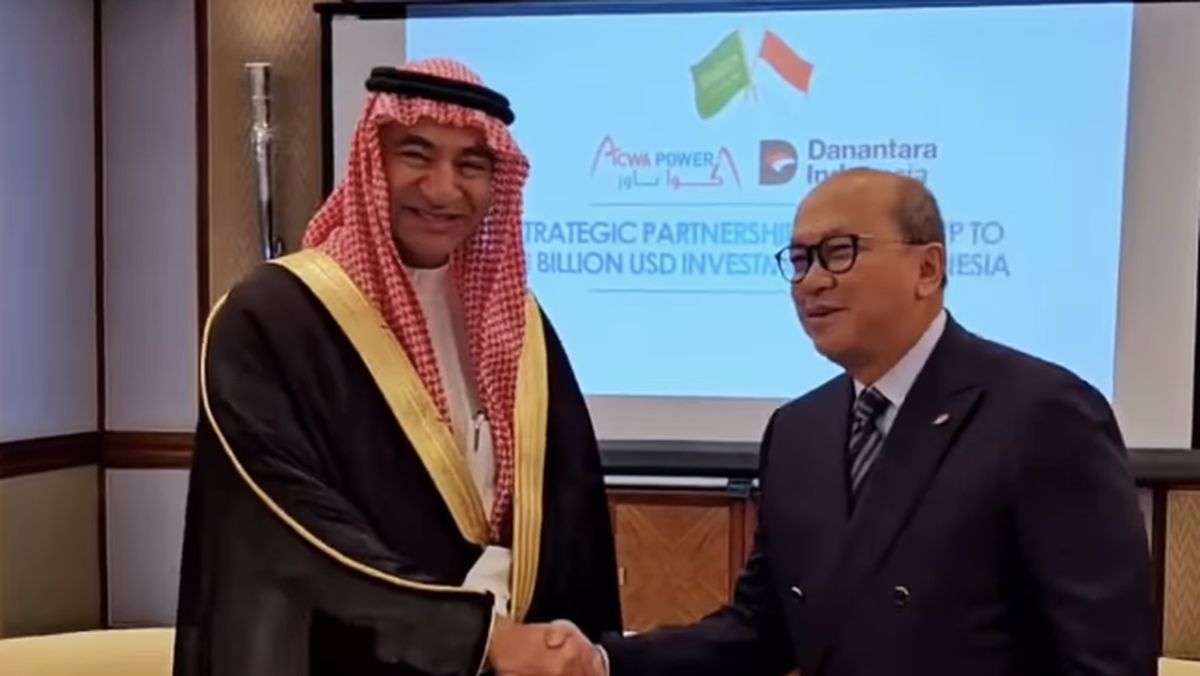Indonesia’s sovereign investment arm, Danantara, has recently entered a transformative clean energy investment agreement with Saudi Arabia’s ACWA Power. This milestone MoU, signed in early July 2025, brings an estimated USD 10 billion (approximately Rp162 trillion) in funding for large-scale renewable energy, green hydrogen, gas-to-power, and desalination projects. This bold move marks a significant shift in Indonesia’s energy landscape, unfolding a strategic collaboration that promises to reshape the country's sustainability, energy security, and economic growth trajectory.
Drawing from reliable sources, this comprehensive article dives deep into the Danantara clean energy investment, its broader implications, and what lies ahead for both nations.
Strategic Investment That Changes The Game
On July 2, 2025, Indonesian President Prabowo Subianto visited Jeddah, where Danantara CEO Rosan Perkasa Roeslani formally signed the MoU with ACWA Power. The agreement outlines an investment package totaling USD 10 billion (approximately Rp162.15–162.36 trillion) across multiple clean energy fronts.
The core investment plan embraces a 500 MW combined-cycle gas-to-power portfolio, green hydrogen production, solar and renewable energy generation, and large-scale water desalination infrastructure. This multi-pronged approach not only addresses Indonesia’s energy mix but also enhances access to sustainable water supply, critical for future growth.
Tangible Benefits for Indonesia's Transition
This clean energy investment directly contributes to Indonesia’s ambitious renewable energy targets of 34% by 2034 and 87% by 2060. By injecting capital and technical expertise from ACWA Power—known globally for desalination and green hydrogen leadership—Danantara gains access to cutting-edge technology, operational know-how, and global best practices.
ACWA Power’s Vice Chairman Raad Al-Saady emphasized the collaboration’s goal to support long-term national energy and water security, drive sustainability, and accelerate Indonesia’s clean future. Danantara’s CEO Rosan Roeslani highlighted that the investment aids not only industrial expansion but also human capital development through knowledge transfer.
Strengthening Bilateral Relations And Economic Diplomacy
The MoU was signed amid President Prabowo’s state visit. Alongside the USD 10 billion clean energy deal, total private-sector agreements with Saudi Arabia reached approximately USD 27 billion, covering petrochemicals, trade logistics, and more. This positions clean energy at the heart of Indonesia’s diplomatic strategy.
Additionally, the formation of the Supreme Coordination Council (Dewan Koordinasi Tertinggi) between Saudi Arabia and Indonesia ensures continuous oversight and execution of these collaborative initiatives.
Key Pillars Of The Danantara Clean Energy Investment
Holistic Clean Infrastructure Approach
Rather than focusing on a single sector, this agreement unites renewable power, green hydrogen, gas-to-power, and desalination under one umbrella. This synergy enables Indonesia to simultaneously tackle energy, climate, and water challenges—a truly integrated solution.
Financial Scale And Strategic Credibility
Securing USD 10 billion capital via a proven global player like ACWA Power establishes Danantara as Indonesia’s credible sovereign investor. This opens pathways for future green finance, increased foreign direct investment, and investor confidence in the nation’s energy landscape.
Technology And Skill Transfer
Beyond funding, this investment brings critical technology for green hydrogen and desalination. It also includes training and capacity building—empowering Indonesian professionals and institutions with vital expertise for future projects.
Energy Security And Climate Resilience
Diversifying energy through renewables and gas-to-power hybrid systems enhances grid stability while reducing carbon footprint. Coupled with desalination infrastructure, this supports climate resilience and ensures sustainable water supply amid shifting weather patterns.
What’s Next: Steps Toward Implementation
- Detailed Feasibility Studies: Both parties will conduct technical and economic feasibility studies for projects focused on renewables, green hydrogen, and desalination.
- Government Approvals and Permits: Essential environmental, regulatory, and investment approvals must be secured.
- Tri-Party Collaboration with Pertamina: Parallel MoUs link Pertamina and ACWA Power to jointly develop 500 MW of power generation capacity, green hydrogen, and desalination services.
- Project Roll-out and Monitoring: After approvals, pilot plants—likely initial solar and hydrogen units—will be deployed. Performance will be monitored for integration and scaling.
- Full-Scale Development: With successful pilots, broader deployment across Indonesian regions will follow, supported by long-term O&M and local workforce development.
Implications for Investors And Global Energy Sector
This Danantara clean energy investment delivers several investor-centric signals:
- Attractive Entry Point for Green Bonds and PPPs: Indonesia’s partnership with ACWA Power sets the stage for green financing models, blending public and private capital.
- ESG Alignment: International investors focused on ESG will view this collaboration as a credible, impactful strategy.
- Regional Leadership: Indonesia positions itself as a sustainability hub in Southeast Asia—potentially leading complex infrastructure deployment across neighboring nations.
- Technology Demonstrator: Successful implementation may serve as a scalable model for similar projects globally, especially in emerging economies.
Challenges And Risk Factors
While promising, several challenges loom:
- Supply Chain Vulnerabilities: Supply chain disruptions in renewable projects and industrial facilities are key risks.
- Geopolitical Sensitivities: Indonesia must balance foreign influence while safeguarding energy sovereignty amid expanded Saudi collaboration.
- Financing Execution: Disbursement of USD 10 billion hinges on project approvals, clear governance, and consistent budgeting protocols.
- Infrastructure Readiness: Integrating grid systems, desalination facilities, and hydrogen pipelines across Indonesia's vast archipelago presents logistical and regulatory complexity.
Conclusion: A Clean Energy Inflection Point
The Danantara clean energy investment marks a pivotal moment for Indonesia’s green transition. By securing USD 10 billion and forging an alliance with global green infrastructure leader ACWA Power, Danantara sets a new standard for sovereign-led sustainability efforts.
This encompasses transformative changes:
- Accelerated deployment of renewable power.
- Cutting-edge green hydrogen capabilities.
- Large-scale desalination for resilience.
- Strategic diplomacy anchoring Indonesia-Saudi cooperation.
For Indonesia, this deal is a powerful step toward a net-zero future, backed by robust funding and international expertise. For investors and energy sector observers, it signals that Southeast Asia is ready for deep green growth and that sovereign investment vehicles can spearhead meaningful change. Execution will be key, but the foundation is now laid for a greener, more sustainable global energy landscape.
Read More






 Wednesday, 04-03-26
Wednesday, 04-03-26







